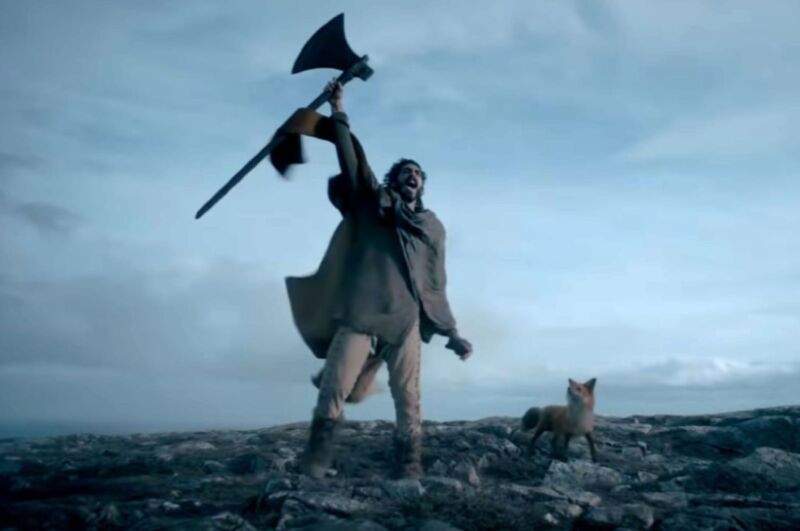
Review: The Green Knight weaves a compelling coming-of-age fantasy quest
David Lowery's atmospheric film is as richly textured and layered as the original poem.
"The tale of Sir Gawain and the Green Knight, immortalized in a 14th-century anonymous poem, is among the most popular of the Arthurian legends, second only to the quest for the Holy Grail. Yet I would argue that it has never been successfully adapted to film—until now. Director David Lowery's new film, The Green Knight, takes some necessary liberties with the source material. But he also artfully weaves in elements and symbols from that source material to create a darkly brooding fantasy quest that is just as richly textured and layered as the medieval poem on which it is based.
(Major spoilers for the 14th-century medieval poem below; some additional spoilers for the film are below the gallery.)
Let's lay out the basics of the original poem before discussing the clever ways in which Lowery (A Ghost Story, Pete's Dragon) has reimagined it.
As I've written previously, Sir Gawain and the Green Knight falls into the chivalric romance genre, relating a well-known story from Arthurian legend in distinctively alliterative verse. (Alliteration was all the rage at the time. I highly recommend J.R.R. Tolkien's translation from 1925 or Simon Armitage's 2008 translation, recently revised.)
On New Year's Day, King Arthur and the knights of the Round Table gather at Camelot to feast and exchange gifts. A mysterious Green Knight disrupts the festivities and proposes a different kind of exchange: any one of the knights may strike him with one blow with his axe; in return, the Green Knight will come back in a year to return the blow. Sir Gawain, the youngest of the knights and nephew to Arthur, accepts the challenge and beheads the Green Knight. Everyone is shocked when the Green Knight picks up his severed head. He says Gawain must meet him at the Green Chapel one year hence to receive a similar blow, per their bargain. . .
One can definitely see elements from all those sources in The Green Knight, but the tapestry Lowery has woven out of so many disparate threads is every inch an original vision. There are no quick cuts or frenetic action sequences. Lowery takes the time to let the story unfold at a leisurely pace, drawing the viewer into the Arthurian world he has created, as seen through the eyes of young Gawain. At times, the film takes on a hallucinatory quality. Just as the 14th-century poem continues to fascinate us some 700 years later, this strange, powerfully evocative film will have you mulling over everything you've just seen, pondering various interpretations, long after you've left the theater.
The Green Knight is now playing in theaters. We strongly recommend only watching movies in theaters if you have been fully vaccinated.


No comments:
Post a Comment